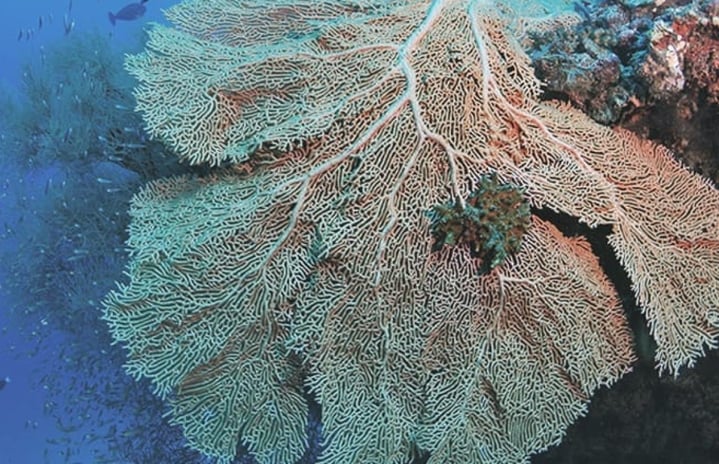A group of environmentalists arrived in Maldives on September 6 to join the Reef Check Eco-Expedition.
The expedition comprises collection of data on the status of reefs near Guraidhoo, Kaafu Atoll, and the west-side of Fulidhoo, Vaavu Atoll.
Additionally, all participants will be given sufficient training to conduct and lead Reef Checks by the conclusion of the 7-day programme.
Course Director for Reef Check and leading scientist Dr Jean-Luc Solandt, who formerly conducted several reef checks in the atolls of Alif Alifuand Alif Dhaalu, is guiding the 16-member team, which includes two locals, throughout the expedition.
If weather conditions are favourable, participants are scheduled to travel to Maamigili, Alif Dhaalu Atoll, in order to observe and study whale sharks.
"[After the expedition] our aim is to reach as many different people in different areas of Maldives, to train them and teach them to collect data so we can stay at one place and analyse the data from across the country," said President of Save the Beach Maldives (STBM) Hassan Ahmed (Beybe), one of the local trainers participating in the expedition.
Noting that there are other individuals who conduct Reef Checks in the country, Solandt noted that Maldives needed someone to coordinate the results, compile them and analyse the data at one place.
As per the expedition team, the data collected in this Eco-Expedition will be used to write scientific papers, prepare expedition reports, identify effects of climate change on coral reefs and marine life throughout the country and raise awareness within the community concerning the protection and conservation of marine life.
"According to scientists, if we keep on producing carbon emissions at this rate, we may lose all our reefs by 2030", Hassan Ahmed stated.
"Scientists are saying that some corals are now adapting to climate change, but it is a race against time as the climate will get hotter and hotter", said Solandt, noting that the reefs could possibly save themselves on their own despite rising temperatures, if the human impact on the environment is reduced to a halt.
"So there is hope", Hassan Ahmed declared, highlighting a list of things that can be done at an individual level to reduce environmental impacts, such as opting for bicycles instead of motor vehicles, reducing the use of plastic, cutting down electricity use, planting trees, avoiding littering and spreading awareness.




